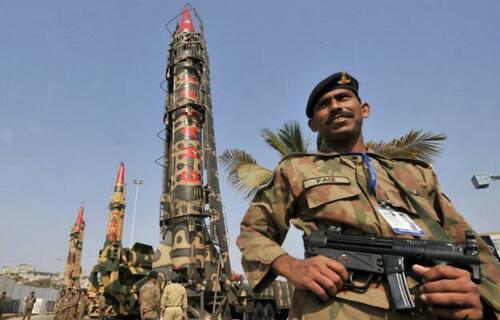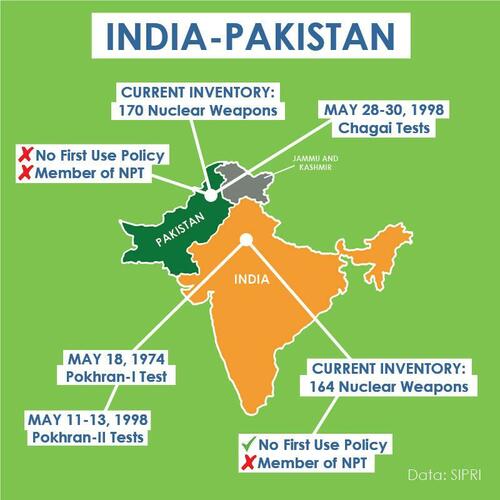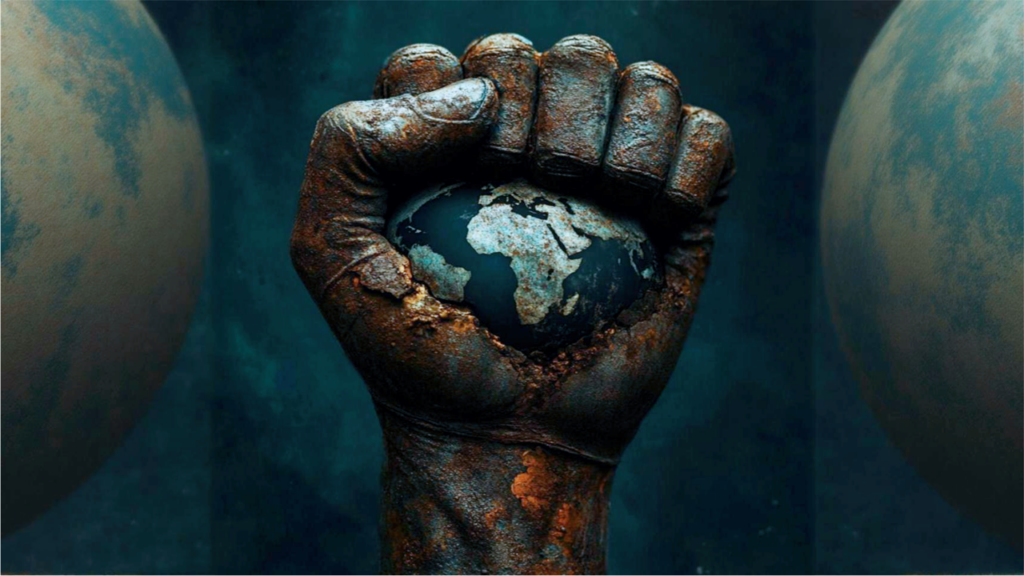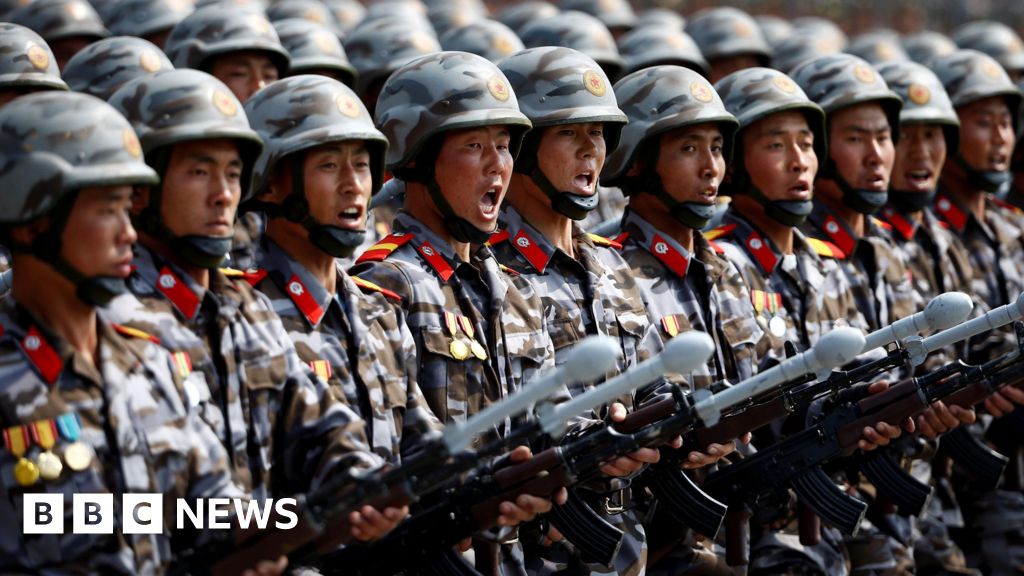What Is The Risk Of Nuclear War Between India And Pakistan?

Hostilities between India and Pakistan have intensified after a deadly militant attack in the contested Kashmir region killed twenty-six people. New Delhi has blamed its neighbor for the attack, but Islamabad has denied any involvement. The incident has sparked a series of smaller military engagements along the Indian border and the Indian government has ordered all Pakistani visitors in India to leave by April 29th. It has also threatened to block or divert water supplies from the Indus River system, which support 80% of Pakistan’s agriculture.
The Indus Water Treaty – which was brokered by the World Bank in September 1960 – determined the rights and obligations of Pakistan and India concerning the use of waters of the Indus River system. The agreement has stood the test of time and has long been hailed as a rare example of cooperation between the two ideologically opposed nations. India’s unilateral suspension of the treaty is being called an “act of war” by Pakistan.
Geopolitical strategists say the move “calculated” – Any diversion of Pakistan’s water supply could trigger famine and civil unrest in the already unstable region. Internal strife has been simmering after Pakistan’s current government arrested former Prime Minister Imran Khan on charges of corruption. The arrest, perhaps not coincidentally, was executed not long after Khan accused a high-ranking Inter Service Intelligence official of planning an assassination attempt
Khan’s arrest led to 2023 Pakistani protests by his supporters throughout the country. The nation has been in political turmoil ever since, on top of an already crushing inflation crisis. Loss of water resources would likely send the country into immediate collapse. While India does not have the infrastructure to block the rivers completely, they do have the ability to greatly reduce the flows to Pakistan, or divert much of the water to storage areas. They have also threatened to stop sharing vital flow data that could lead to a lack of flood warnings, thus destroying large swaths of farmland.
The existential threat this development represents to the Pakistani government opens the door to otherwise unthinkable retaliation. Nukes are indeed on the table. Analysts say Pakistan’s use of phrase “complete spectrum of national power means Pakistan can go to any limit, including the use of nuclear weapons.”
At the very least, Pakistan’s military will not hesitate to strike any infrastructure used by India to stem the water from the Indus rivers. Another factor that does not bode well is India’s overt superiority in terms of military power. India’s active military and reserve forces are twice the size of Pakistan’s. They have twice the air power, twice the tanks, a far larger navy which boasts a number of nuclear submarines.
The strength difference might compel Pakistan to use nukes immediately as a way to even the fight, or ensure the mutual destruction of India in a war Pakistan knows it will lose. In other words, the risk of a nuclear exchange is extraordinarily high.
Pakistan is estimate to control at least 170 nuclear weapons of various yields. All of them have a range of under 2000 miles, but they are more than enough to wipe out all of India’s major population centers. Pakistan also has a “first use” policy; they hold that any war with a nuclear armed opponent means they have the option to fire nukes first.
India’s arsenal is comparable, with at least 164 nuclear weapons, though many have a larger yield and greater range.
A nuclear exchange or full blown war also risks the potential involvement of nuclear armed China. China and Pakistan have increased defense ties over the years. In February, China “reiterated its firm support for Pakistan in defending its national sovereignty, independence, and territorial integrity, and its support for Pakistan’s efforts to safeguard national security, stability, development and prosperity”.
The three countries together represent around half the human population of the Earth. Radioactive fallout would do damage to the majority of the South Pacific. While theories of a “nuclear winter” are overblown and radioactive fallout from weapons generally dissipates to safe levels within three weeks according to US military studies, the effects on the global economy and food supplies in the East would be devastating, leading to a long term international crisis.
Loading…











